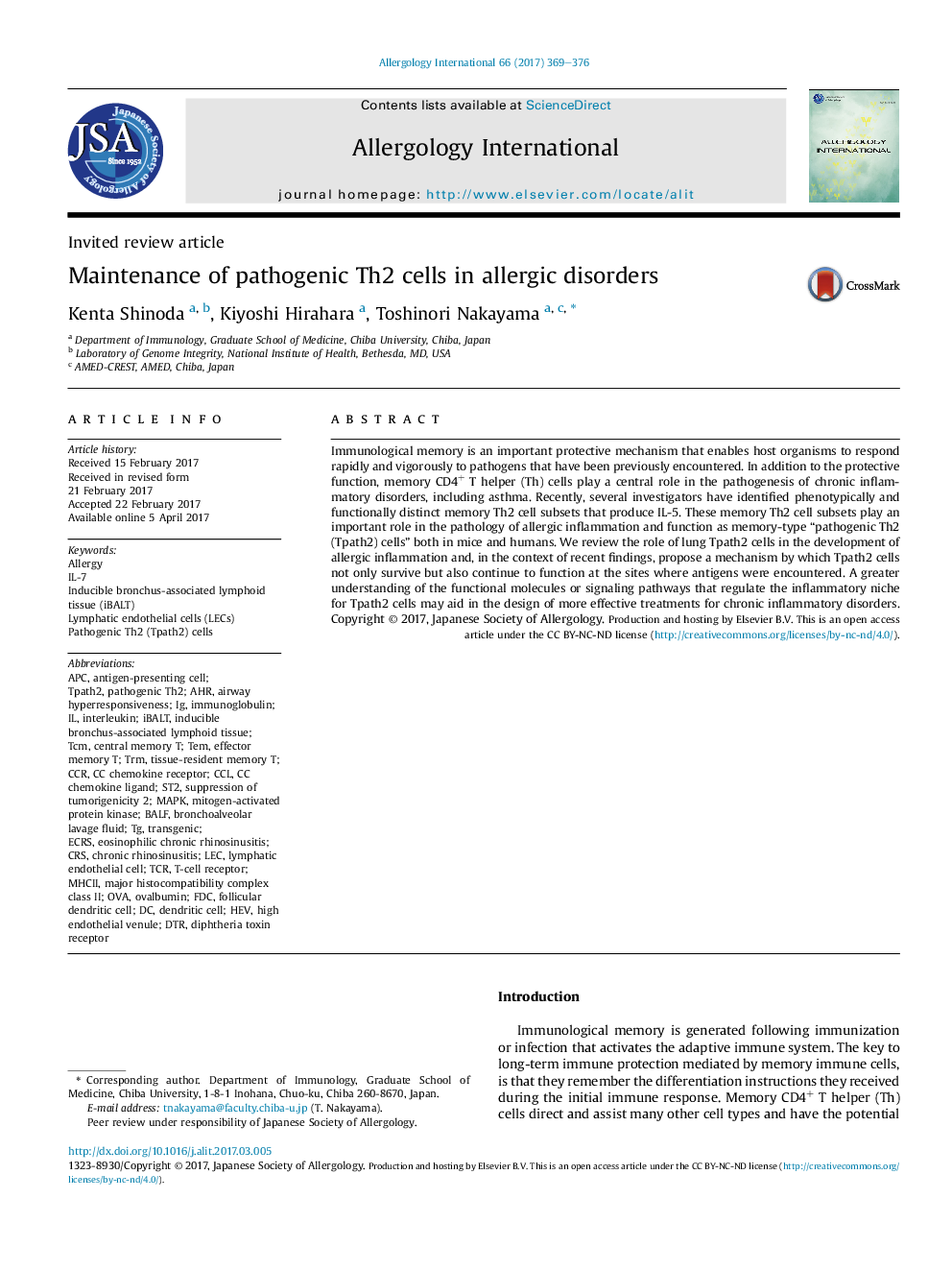| Article ID | Journal | Published Year | Pages | File Type |
|---|---|---|---|---|
| 5665250 | Allergology International | 2017 | 8 Pages |
Immunological memory is an important protective mechanism that enables host organisms to respond rapidly and vigorously to pathogens that have been previously encountered. In addition to the protective function, memory CD4+ T helper (Th) cells play a central role in the pathogenesis of chronic inflammatory disorders, including asthma. Recently, several investigators have identified phenotypically and functionally distinct memory Th2 cell subsets that produce IL-5. These memory Th2 cell subsets play an important role in the pathology of allergic inflammation and function as memory-type “pathogenic Th2 (Tpath2) cells” both in mice and humans. We review the role of lung Tpath2 cells in the development of allergic inflammation and, in the context of recent findings, propose a mechanism by which Tpath2 cells not only survive but also continue to function at the sites where antigens were encountered. A greater understanding of the functional molecules or signaling pathways that regulate the inflammatory niche for Tpath2 cells may aid in the design of more effective treatments for chronic inflammatory disorders.
